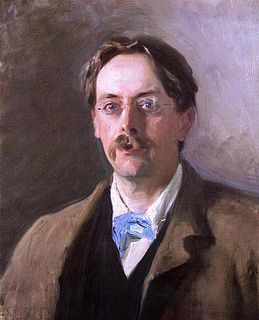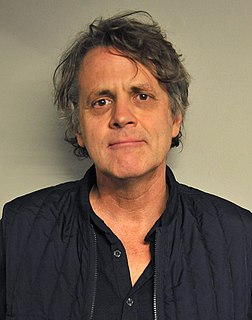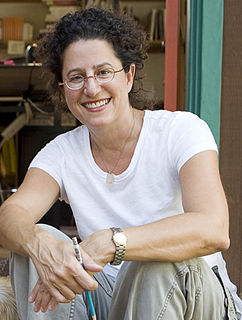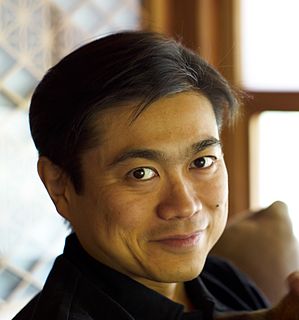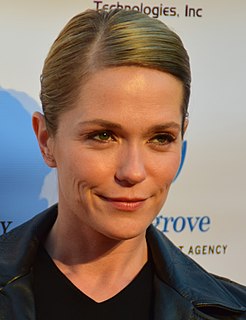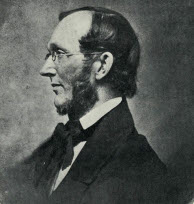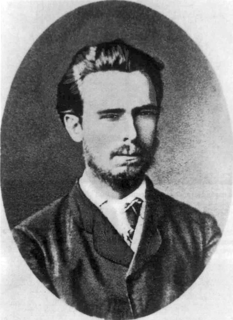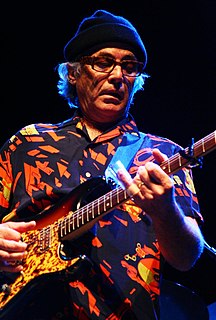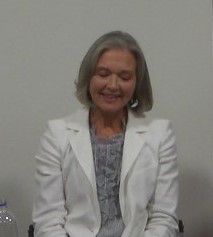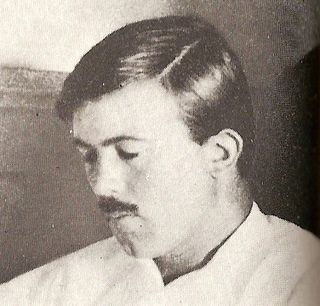Top 507 Inhabit Quotes & Sayings - Page 8
Explore popular Inhabit quotes.
Last updated on December 22, 2024.
...It's all sort of dreams and it's all illusion. It's theater; it's not real. We're making up stories, you know, and people tend to run into you and believe you are your characters. And I suppose the funny thing is the longer you go, you do become sort of some version of [your characters]. You both diverge from them - you know - you live, but you also permanently inhabit that geography and that mental space - and so you do morph a little bit. We do become what we imagine.
To build and sustain brands people love and trust, one must focus-not only on today but also on tomorrow. It's not easy...but balancing the short and long term is key to delivering sustainable, profitable growth-growth that is good for our shareholders but also good for our consumers, our employees, our business partners, the communities where we live and work, and the planet we inhabit
Two opposing forces inhabit the poem: one of elevation or up-rooting, which pulls the word from the language: the other of gravity, which makes it return. The poem is an original and unique creation, but it is also reading and recitation: participation. The poet creates it; the people, by recitation, re-create it. Poet and reader are two moments of a single reality.
In mature years I have always been gregarious, a lover of my kind, dependent upon the company of friends for the very pulse of moral life. To be marooned, to be shut up in a solitary cell, to inhabit a lighthouse, or to camp alone in a forest, these have always seemed to me afflictions too heavy to be borne, even in imagination. A state in which conversation exists not, is for me an air too empty of oxygen for my lungs to breathe it.
As long as you identify with the universe - which is perfect and can correct material conditions to bring them back into alignment with that Divine perfection - as long as that is where your mind is aligned, it's as though there were two parallel universes. You decide with every thought you think which one you're going to inhabit. Two parallel universes of experience, as it were.
It seems to me that you need a lot of courage, or a lot of something, to enter into others, into other people. We all think that everyone else lives in fortresses, in fastnesses: behind moats, behind sheer walls studded with spikes and broken glass. But in fact we inhabit much punier structures. We are, as it turns out, all jerry-built. Or not even. You can just stick your head under the flap of the tent and crawl right in. If you get the okay.
The universe that we inhabit and our shared perception of it are the results of a common karma. Likewise, the places that we will experience in future rebirths will be the outcome of the karma that we share with the other beings living there. The actions of each of us, human or nonhuman, have contributed to the world in which we live. We all have a common responsibility for our world and are connected with everything in it.
The most fun is to inhabit the world where cartoon physics is king. And that just means that things move with kind of an energy and exaggeration and appeal that is different from what we see in our world. We're bound by, at least, Newton's Laws of physics here and in animation we're not. So, director's can be extremely eccentric, you can sculpt motion in animation in a way that you just can't do any other way. In any other performance medium.
Shake off those gloomy feelings. Drive them away. Fix your mind and pleasures upon what is before you.All is bright if you will think it so. All is happy if you will make it so. Do not dream. It is too ideal, too imaginary. Dreaming by day, I mean. Live in the world you inhabit. Look upon things as they are. Take them as you find them. Make the best of them. Turn them to your advantage.
For myself, I like a universe that, includes much that is unknown and, at the same time, much that is knowable. A universe in which everything is known would be static and dull, as boring as the heaven of some weak-minded theologians. A universe that is unknowable is no fit place for a thinking being. The ideal universe for us is one very much like the universe we inhabit. And I would guess that this is not really much of a coincidence.
[My muse] likes to inhabit tea leaves, sunlight filtered through bamboo, melancholy clouds over the Devon coastline, a weedy railroad crossing in the Southern States, bubblegum pop from the sixties, torch songs from the forties, undersea caves where B-movie octopi grapple with men in loincloths, sacred groves of pink anime dryads, Victorian fairy paintings executed by gentlemen in lunatic asylums and so on.
Children, be curious. Nothing is worse (I know it) than when curiosity stops. Nothing is more repressive than the repression of curiosity. Curiosity begets love. It weds us to the world. It's part of our perverse, madcap love for this impossible planet we inhabit. People die when curiosity goes. People have to find out, people have to know.
The more truthful I am with myself and others, the more my conscience is clear and tranquil. Thus, I can more thoroughly and unequivocally inhabit the present moment and accept everything that happens without fear, knowing that what goes around comes around (the law of karma). Ethical morality and self-discipline represent the good ground, or stable basis. Mindful awareness is the skillful and efficacious grow-path, or way. Wisdom and compassion constitute the fruit, or result. This is the essence of Buddhism [...]
What I had to do was learn how to tell stories with my pictures. At first I didn't even know what that meant because I thought I was already doing it. After all these years of drawing stories and trying to teach it, I think it boils down to a pretty simple rule: it takes time to get to know the characters in a book and the world they inhabit. My first sketches are always horrible. Stereotypical. Contrived. Generic. I have to put in the time in order to deepen them and have it all mean something.
Siphonophores do not convey the message a favorite theme of unthinking romanticism that nature is but one gigantic whole, all its parts intimately connected and interacting in some higher, ineffable harmony. Nature revels in boundaries and distinctions; we inhabit a universe of structure. But since our universe of structure has evolved historically, it must present us with fuzzy boundaries, where one kind of thing grades into another.
A work of art is something produced by a person, but is not that person — it is of her, but is not her. It’s a reach, really — the artist is trying to inhabit, temporarily, a more compact, distilled, efficient, wittier, more true-seeing, precise version of herself — one that she can’t replicate in so-called ‘real’ life, no matter how hard she tries. That’s why she writes: to try and briefly be more than she truly is.
It's not the job of this town to make me feel happy. It's not this town´s fault that I don't feel I fit in. It doesn't matter where you are in the world, because it's about where you are in your head. It's about the other world I inhabit. The world of dreams, hope, imagination, and memories. I'm happy up here, and because of that I'm happy up there too
If laying aside all worldly Greatness and Vain-Glory, I should be ask'd where I thought it was most probable that Men might enjoy true Happiness, I would prefer a small peaceable Society, in which Men, neither envy'd nor esteem'd by Neighbours, should be contented to live upon the Natural Product of the Spot they inhabit, to a vast Multitude abounding in Wealth and Power, that should always be conquering others by their Arms Abroad, and debauching themselves by Foreign Luxury at Home.
Cities have often been compared to language: you can read a city, it's said, as you read a book. But the metaphor can be inverted. The journeys we make during the reading of a book trace out, in some way, the private spaces we inhabit. There are texts that will always be our dead-end streets; fragments that will be bridges; words that will be like the scaffolding that protects fragile constructions.
I am less affected by their heroism who stood up for half an hour in the front line at Buena Vista, than by the steady and cheerful valor of the men who inhabit the snow-plow for their winter quarters; who have not merely the three-o'-clock-in-the-morning courage, which Bonaparte thought was the rarest, but whose courage does not go to rest so early, who go to sleep only when the storm sleeps or the sinews of their iron steed are frozen.
When I watch that attachment happening, I see the beliefs that I have around it. If somebody's not paying attention to me in a certain way, in my mind, it means they don't love me or they don't respect me. Bringing awareness to the beliefs that are underneath the attachment and bringing awareness to the way my body and heart are tightening, helps me wake up and re-inhabit a larger space of being. Holding on and pushing away might be going on but I'm freer to respond in a healthy way.
Humor is widely used by Indians to deal with life. Indian gatherings are marked by laughter and jokes, many directed at the horrors of history, at the continuing impact of colonization, and at the biting knowledge that living as an exile in one's own land necessitates. . . . Certainly the time frame we presently inhabit has much that is shabby and tricky to offer; and much that needs to be treated with laughter and ironic humor.
We must create a history of India in living terms. Up to the present that history, as written by the English, practically begins with Warren Hastings, and crams in certain unavoidable preliminaries, which cover a few thousands of years...The history of India has yet to be written for the first time. It has to be humanized, emotionalized, made the trumpet-voice and evangel of the race that inhabit India.
The earth is not a lair, neither is it a prison. The earth is a Paradise, the only one we'll ever know. We will realize it the moment we open our eyes. We don't have to make it a Paradise-it is one. We have only to make ourselves fit to inhabit it. The man with the gun, the man with murder in his heart, cannot possibly recognize Paradise even when he is shown it.
Consent of the Networked will become the seminal book firmly establishing the responsibility of those who control the architecture and the politics of the network to the citizens who inhabit our new digital world. Consent of the Networked should be required reading for all of those involved in building our networked future as well as those who live in it.
We have today to learn to get back into accord with the wisdom of nature and realize again our brotherhood with the animals and with the water and the sea. To say that divinity informs the world and all things is condemned as pantheism. But pantheism is a misleading word. It suggests that a personal god is supposed to inhabit the world, but that is not the idea at all. The idea is trans-theological. It is of an indefinable, inconceivable mystery, thought of as a power, that is the source and end and supporting ground of all life and being.
Straight away, remove yourself from the field of spiritual progression , stay away from contemplation and skillful discourse, do not do research or meditate on the divinities, and stop concentrating and reciting textbooks! Tell me, what is the absolute nature of reality which allows no room for doubt? Listen carefully! Stop holding on to this or that, inhabit your true absolute nature, and peacefully enjoy the essence of what it is to be alive!
As an actor, you're lucky if you get a month before a project starts. There are times when you get a day before a project starts. So to be able to really sit and inhabit that mind and the story is really beneficial, and it really helps for me to be able to then compartmentalize as we're shooting and detach and go somewhere else.
The world we inhabit is abundant beyond our wildest imagination. There are trees, dreams, sunrises; there are thunderstorms, shadows, rivers; there are wars, flea bites, love affairs; there are the lives of people, Gods, entire galaxies. The simplest human action varies from one person and occasion to the next-how else would we recognize our friends only from their gait, posture, voice, and divine their changing moods? Only a tiny fraction of this abundance affects our minds. This is a blessing, not a drawback.
And just as you supported and carried out a policy of not wanting to share the earth with the Jewish people and the people of a number of other nations - as though you and your superiors had any right to determine who should and who should not inhabit the world - we find that no one, that is, no member of the human race, can be expected to want to share the earth with you. This is the reason, and the only reason, you must hang.
It may be that what you could be haunts you. It is real. It is a weight you have to carry around. Each failure to become, to be, is a weight. Each state you could inhabit is a burden as heavy as any physical weight, but more so, because it weighs on your soul. It is the ghost of your possibilities hanging around your neck, an invisible albatros, potentials unknowingly murdered.
There's a hole in the world like a great black pit and the vermin of the world inhabit it and its morals aren't worth what a pig could spit and it goes by the name of London. At the top of the hole sit the privileged few Making mock of the vermin in the lonely zoo turning beauty to filth and greed... I too have sailed the world and seen its wonders, for the cruelty of men is as wonderous as Peru but there's no place like London!
Why should it be thought incredible that the same soul should inhabit in succession an indefinite number of moral bodies? Even during this one life our bodies are perpetually changing, through a process of decay and restoration; which is so gradual that it escapes our notice. Every human being thus dwells successively in many bodies, even during one short life.
I still believe in the resilience of the human heart and the essential validity of love;I still believe that connections between people can be made and that the spirits which inhabit us sometimes touch. I still believe that the cost of these connections is horribly, outrageously high... and I still believe that the value received far outweighs the price which must be paid. (From introductory notes.)
We are shaped by stories from the first moments of life, and even before. Stories tell us who we are, why we are here, and what will become of us. Whenever humans try to make sense of their experience, they create a story, and we use those stories to answer all the big questions of life. The stories come from everywhere--from family, church, school, and the culture at large. They so surround and inhabit us that we often don't recognize that they are stories at all, breathing them in and out as a fish breathes water.
I am Ubik. Before the universe was, I am. I made the suns. I made the worlds. I created the lives and the places they inhabit; I move them here, I put them there. They go as I say, then do as I tell them. I am the word and my name is never spoken, the name which no one knows. I am called Ubik, but that is not my name. I am. I shall always be.
The Psalms offer us a way of joining in a chorus of praise and prayer that has been going on for millennia and across all cultures. Not to try to inhabit them, while continuing to invent non-psalmic 'worship' based on our own feelings of the moment, risks being like a spoiled child who, taken to the summit of Table Mountain with the city and the ocean spread out before him, refuses to gaze at the view because he is playing with his Game Boy
The genius is not in how much Stanley Kubrick does in “2001: A Space Odyssey,'' but in how little. This is the work of an artist so sublimely confident that he doesn't include a single shot simply to keep our attention. He reduces each scene to its essence, and leaves it on screen long enough for us to contemplate it, to inhabit it in our imaginations. Alone among science-fiction movies, “2001'' is not concerned with thrilling us, but with inspiring our awe.
I don't think there is anything as powerful as an active heart. They do not fear the wisdom of emotion, but embody it. They know how to listen. They are polite when they need to be and unyielding when necessary. They remain open, even as they push boundaries and inhabit the margins, understanding eventually, the margins will move toward the center. They are tenacious, informed, patient, and impatient, at once. They do not shy away from what is difficult. They refuse to accept the unacceptable. The most effective activists I know are in love with the world.
We have to make some things for ourselves because the conveyer belt from China is doomed (this process is known as import replacement). We have to do transportation differently, because mass motoring and even commercial aviation will soon be over. We have to inhabit the landscape differently because both suburbia and the metroplex mega-city will be obsolete, so we will have to return to a more traditional disposition of things in smaller urbanisms associated with productive agricultural hinterlands.
If we can't think for ourselves, if we're unwilling to question authority, then we're just putty in the hands of those in power. But if the citizens are educated and form their own opinions, then those in power work for us. In every country, we should be teaching our children the scientific method and the reasons for a Bill of Rights. With it comes a certain decency, humility and community spirit. In the demon-haunted world that we inhabit by virtue of being human, this may be all that stands between us and the enveloping darkness.
The Revolutionist is a doomed man. He has no private interests, no affairs, sentiments, ties, property nor even a name of his own. His entire being is devoured by one purpose, one thought, one passion - the revolution. Heart and soul, not merely by word but by deed, he has severed every link with the social order and with the entire civilized world; with the laws, good manners, conventions, and morality of that world. He is its merciless enemy and continues to inhabit it with only one purpose - to destroy it.
The secret of the Great Stories is that they have no secrets. The Great Stories are the ones you have heard and want to hear again. The ones you can enter anywhere and inhabit comfortably... in the Great Stories you know who lives, who dies, who finds love, who doesn't. And yet you want to know again.
One can imagine a time when men who still inhabit organic bodies are regarded with pity by those who have passed on to an infinitely richer mode of existence, capable of throwing their consciousness or sphere of attention instantaneously to any point on land, sea, or sky where there is a suitable sensing organ. In adolescence we leave childhood behind; one day there may be a second and more portentous adolescence, when we bid farewell to the flesh.
Most folks, when they see movies or hear records, need something that they find pulls them in, draws them in, and appeals to them beyond just the notes. For a record to be memorable and great, it has to have something of this quality. Exactly what that is, I don't know, but I think it has something to do with an atmosphere, an environment that is appealing and attractive. And the people that inhabit this environment have... almost a message for the rest of the world.
The world men inhabit is rather bleak. It is a world full of doubt and confusion, where vulnerability must be hidden, not shared; where competition, not co-operation, is the order of the day; where men sacrifice the possibility of knowing their own children and sharing in their upbringing, for the sake of a job they may have chosen by chance, which may not suit them and which in many cases dominates their lives to the exclusion of much else.
There were three classes of inhabitants who either frequent or inhabit the country which we had now entered: first, the loggers, who, for a part of the year, the winter and spring, are far the most numerous, but in the summer, except for a few explorers for timber, completely desert it; second, the few settlers I have named, the only permanent inhabitants, who live on the verge of it, and help raise supplies for the former; third, the hunters, mostly Indians, who range over it in their season.
One road to happiness is to cultivate curiosity about everything. Not only about people but about subjects, not only about the arts but about history and foreign customs. Not only about countries and cities, but about plants and animals. Not only about lichened rocks and curious markings on the bark of trees, but about stars and atoms. Not only about your friends but about that strange labyrinth we inhabit which we call ourselves. Then, if we do that, we will never suffer a moment's boredom.
VR could, in theory, connect sports fans in different geographical locations so they could watch a game together. Instead of a group text or Twitter stream of commentary playing out across time zones when a team is playing, our avatars could inhabit virtual stands, side by side with the rest of our digital tribe.
Everything I make is with intention. I'm not very haphazard with my artist work, although I wish I was sometimes. I'm very conscious of the conversations I'm pushing about different threads and themes around landscape and characters that exist - how it's pictured, who's pictured it, who's owned it and who's been able to inhabit certain spaces. I have other interests as well. I'm really obsessed now with going to gay male dance clubs. I find those thrilling. I'm interested in what future characters can come.
Let us not be blind to our differences-but let us also direct attention to our common interests and to the means by which those differences can be resolved. And if we cannot end our differences, at least we can help make the world safe for diversity. For, in the final analysis, our most common link is that we all inhabit this small planet. We all breathe the same air. We all cherish our children's future. And we are all mortal.
My ultimare goal is, without illusion and without sentimentality, merely by telling the truth as I see it, to break your heart. If I can break your heart and cause your awareness to expand to include another person's experience, even a fictional person's experience, and to inhabit for a moment their sorrow and suffering, then I think it expands us as people.
the novel is inherently a political instrument, regardless of its subject. It invites you - more than invites you, induces you - to live inside another person's skin. It creates empathy. And that's the antidote to bigotry. The novel doesn't just tell you about another life, which is what a newspaper would do. It makes you live another life, inhabit another perspective. And that's very important.
The private experience that you perceive forms your world, period. But which world do you inhabit? For if you altered your private sensations of reality, then that world, seemingly the only one, would also change. You do go through transformations of beliefs all the time, and your perception of the world is different. You seem to be, no longer, the person you that you were. You are quite correct — you are not the person that you were, and your world has changed, and not just symbolically.
In language that is searing and lyrical, evocative and precise, this exceptional book thinks with the zombies, specters, felons, slaves, dogs, cadavers, and other entities that are the remnants of loss and dispossession in the law. Dogs and people are abundantly present here, even as the legal fictions they are made to inhabit are exposed with acid lucidity. These are hard histories made readable by Dayan's precious acts of writing.
How hard is it for God to get your attention? Do you regularly practice turning aside in your day? That is, taking a moment to listen to God- because God, through the Holy Spirit, really is speaking, because we know, every place is filled with the presence of God. There is not an inch of space, not a moment of time, that God does not inhabit.
The most important thing in life is human affection.
Without it one cannot achieve genuine happiness.
And if we want a happier life, a happier family, happier neighbours
or a happier nation, the key is inner quality.
Even if the five billion human beings that inhabit the earth become
millionaires, without inner development there cannot be peace
or any lasting happiness.
Physical fitness is not only one of the most important keys to a healthy body, it is the basis of dynamic and creative intellectual activity. The relationship between the soundness of the body and the activities of the mind is subtle and complex. Much is not yet understood. But we do know what the Greeks knew: that intelligence and skill can only function at the peak of their capacity when the body is healthy and strong; that hardy spirits and tough minds usually inhabit sound gods.
Suddenly I find myself feeling sorry for those greedy, needy people whose huge salaries are never quite enough, whose sense of worth is defined by their own personal wad. What a diminished, impoverished world they must inhabit ... We should feel sorry for them and their sadly limited lives. Then we should remember never to trust the judgement of those whose priorities are so idiotically skewed.



